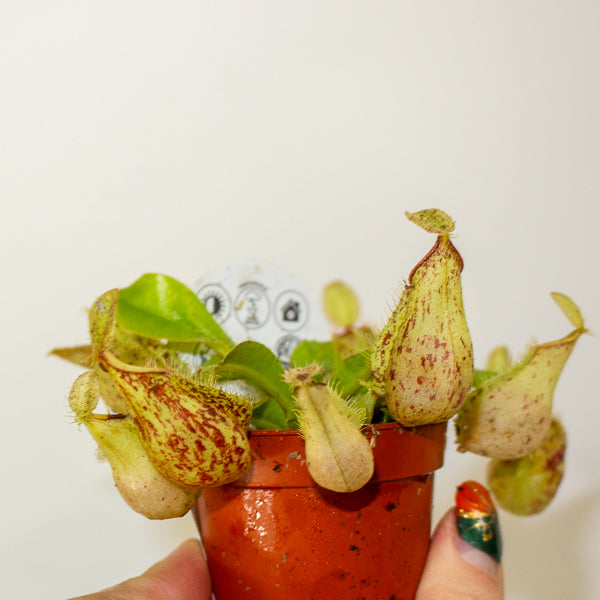1
/
of
10
Emm's Plant House
Nepenthes mix 5.5cm H10cm
Nepenthes mix 5.5cm H10cm
Regular price
£9.00 GBP
Regular price
Sale price
£9.00 GBP
Unit price
/
per
Taxes included.
Couldn't load pickup availability
Nepenthes, commonly known as Tropical Pitcher Plants, are spectacular carnivorous plants prized for their elegant hanging pitchers that trap insects. Mixed Nepenthes assortments often include a blend of hardy hybrids and species with vibrant pitcher colours, flared peristomes, and dramatic shapes. Exotic, fascinating, and surprisingly adaptable indoors, they bring a true jungle aesthetic to any bright, humid environment.
- Full Botanical Name: Nepenthes spp. (mixed species/hybrids)
- Common Names: Pitcher Plant, Monkey Cup Plant, Tropical Pitcher Plant
- Country and/or Region of Origin: Southeast Asia—Borneo, Sumatra, Philippines, Malaysia, Indonesia, and surrounding regions
- Growing Conditions in Native Habitat: Grow as climbers or ground-dwellers in tropical rainforests, swamps, and mountain cloud forests; thrive in bright filtered light, high humidity, and nutrient-poor soil
Care Guide
Care Guide
- Lowland types: 22–30°C (warm and humid)
- Highland types: 18–25°C days with cooler nights (12–18°C)
- Hybrids: Thrive in 20–28°C with stable humidity
Share




















